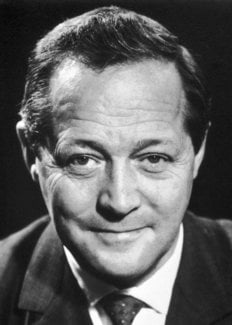Feodor Lynen
Biographical

Feodor Lynen was born in Munich on 6 April 1911, the son of Wilhelm Lynen, Professor of Mechanical Engineering at the Munich Technische Hochschule. His mother, Frieda, was the daughter of the manufacturer Gustav Prym. Lynen completed his primary and secondary schooling in Munich, and in 1930 matriculated at the chemistry department of Munich University. Those who were to become responsible for his scientific training included Heinrich Wieland, Otto Hönigschmidt, Kasimir Fajans, and Walter Gerlach. The most enduring impression was left by Heinrich Wieland, who had won the Nobel Prize for Chemistry in 1927 and under whom Lynen graduated in March 1937 with the work: «On the Toxic Substances in Amanita». On completion of his doctoral thesis Lynen became acquainted under his guidance with the dynamic field of biochemistry, to which he has remained faithful to this day.
Lynen has also remained faithful to Munich University, where he became a chemistry lecturer in 1942, assistant professor in 1947, and biochemistry professor in 1953. In addition, in 1954 he became head of the Max-Planck-Institut für Zellchemie, newly created for him as a result of the initiative of Otto Warburg and Otto Hahn, then President of the Max-Planck-Gesellschaft zur Förderung der Wissenschaften. In this way Lynen acquired outstanding opportunities for scientific research.
Lynen’s work has been devoted to the elucidation of the chemical details of metabolic processes in living cells, and of the mechanisms of metabolic regulation. The problems tackled by him, in conjunction with German and other workers, include the Pasteur effect, acetic acid degradation in yeast, the chemical structure of «activated acetic acid» of «activated isoprene», of «activated carboxylic acid», and of cytohaemin, degradation of fatty acids and formation of acetoacetic acid, degradation of tararic acid, biosynthesis of cysteine, of terpenes, of rubber, and of fatty acids.
In 1954 Lynen received the Neuberg Medal of the American Society of European Chemists and Pharmacists, in 1955 the Liebig Commemorative Medal of the Gesellschaft Deutscher Chemiker, in 1961 the Carus Medal of the Deutsche Akademie der Naturforscher «Leopoldina», and in 1963 the Otto Warburg Medal of the Gesellschaft für Physiologische Chemie.
He is a member of the Bayerische Akademie der Wissenschaften in Munich and of the Deutsche Akademie der Naturforscher «Leopoldina» in Halle, honorary member of the Harvey Society in New York, the American Society of Biological Chemists in Washington, the Asociacion Venezolana para el Avance de la Ciencia in Caracas, foreign member of the National Academy of Sciences of the United States of America in Washington, and the American Academy of Arts and Sciences in Boston. He has received an honorary doctorate from the faculty of medicine of the University of Freiburg i. Br.
On January 1st, 1972, Prof. Feodor Lynen was appointed President of the Gesellschaft Deutscher Chemiker (GDCh).
He was married on 14 May 1937 to Eva Wieland, daughter of his academic teacher. They have five children: Peter, born in 1938; Annemarie, born in 1941; Susanne, born in 1945; Heinrich and Eva-Maria, born in 1946.
This autobiography/biography was written at the time of the award and first published in the book series Les Prix Nobel. It was later edited and republished in Nobel Lectures. To cite this document, always state the source as shown above.
Feodor Lynen died on August 6, 1979.
Nobel Prizes and laureates
Six prizes were awarded for achievements that have conferred the greatest benefit to humankind. The 14 laureates' work and discoveries range from quantum tunnelling to promoting democratic rights.
See them all presented here.
